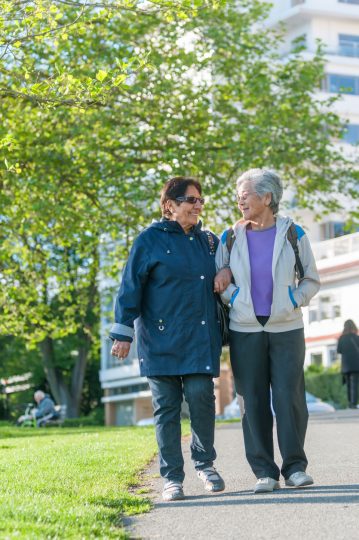Get active this spring to keep your lungs healthy

This World Lung Day (Saturday 25 September), the Institute for Respiratory Health is calling on the local community to take regular physical activity to help keep your lungs healthy.
Whether you’re healthy or have a lung condition, regular physical activity and exercise improves quality of life and spring is the perfect time to start.
“When you exercise, your heart beats faster and your lungs work harder,” said Dr Sue Jenkins an expert in pulmonary rehabilitation at the Institute.
“When your lungs are healthy, you have a large breathing reserve. You may be aware of your breathing after exercise, but you will not experience breathlessness.
“When you have reduced lung function, you often use a large part of your breathing reserve even for low-level exercise and normal daily activities. This leads to the sensation of breathlessness, which can be an unpleasant feeling.
“Many people with a lung condition might be put off from doing any exercise because it makes them feel ‘breathless’, but in fact, breathlessness caused by lung disease is not harmful. When it comes to improving your breathing, many people find that being active is more effective than inhaled medications.”
Dr Jenkins said there are both physical and mental health benefits from regular exercise, for example walking at a level to improve the function of the leg muscles. This in turn leads to more efficient use of oxygen and a reduction in breathlessness. Regular exercise has many more benefits for people with lung disease including an improved sense of wellbeing, reducing the likelihood of flare-ups, improving bone strength and can help with maintaining a healthy weight.
“Many people with a lung disease might have concerns and wonder whether they should be exercising or not,” said Dr Jenkins.
“But they can benefit from pulmonary rehabilitation. Most often this involves an eight-week program of exercise, education and support that teaches the skills you need to exercise safely and manage your breathlessness.
“Generally, participants undertake two sessions of about 60-90 minutes each week that are supervised by a physiotherapist and the physiotherapist also prescribes a home exercise program. Within WA, the sessions are held in community centres and in hospitals. You can find out how to participate by talking to your lung specialist.
“Completing a course of pulmonary rehabilitation is a good way to learn how to exercise safely and at the right level for you. Most people enjoy the course. It builds confidence and participants benefit from meeting others in a similar situation.”
Pulmonary rehabilitation helps you manage your condition and makes you feel better but it’s not a cure. There’s evidence that it improves your ability to walk further, helps you feel less tired and less breathless when doing day-to-day activities and reduces your risk of ending up in hospital. However, you’re unlikely to see a change in your lung function, so you may not see a difference in breathing test results. What it can do is help you make the most of the lung function that you have.
“There’s no better time to consider getting fit and active now in the springtime as you can get outdoors and benefit from exercising in the fresh air,” said Dr Jenkins.
This World Lung Day don’t forget to care of your lungs not just on this day but every day.